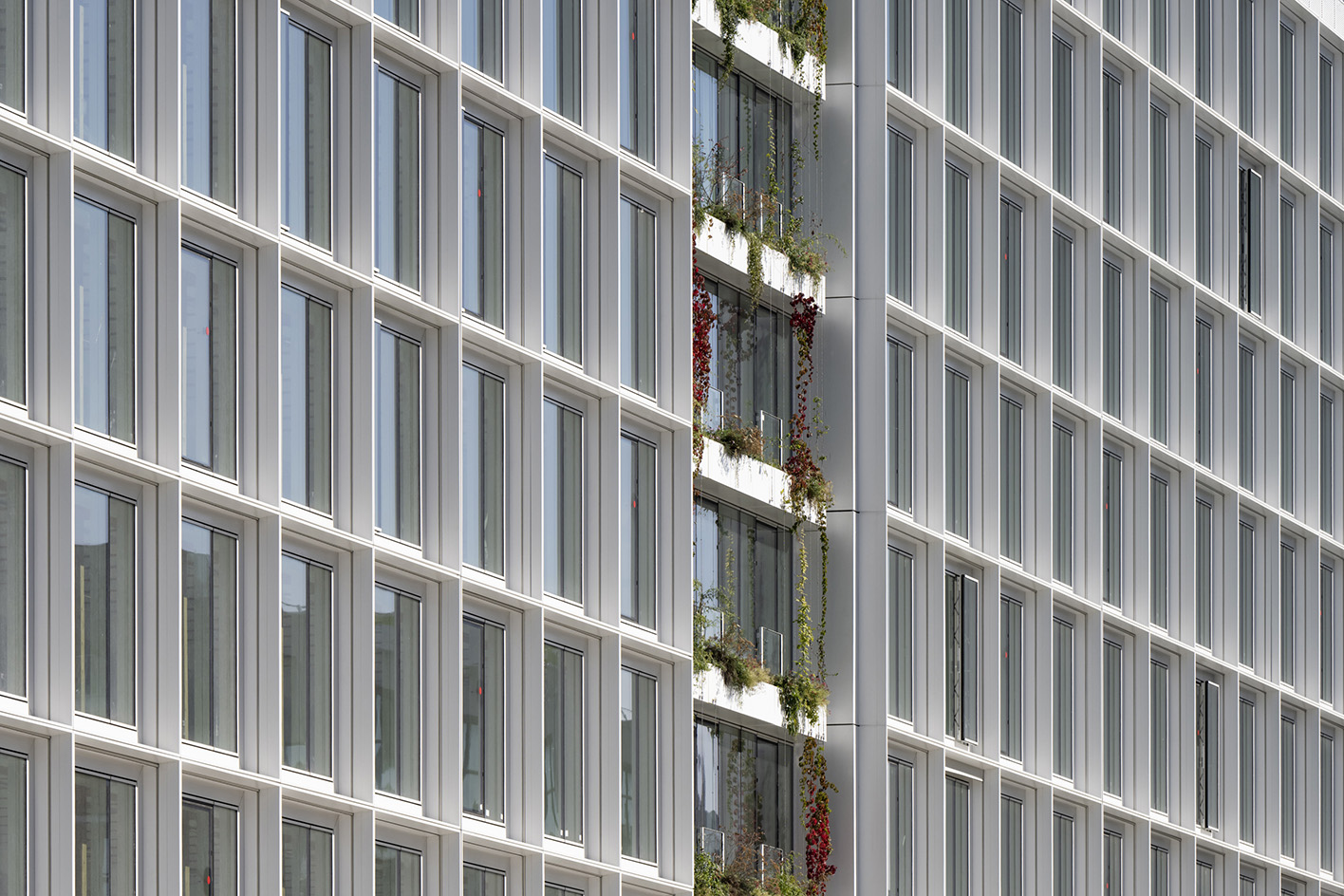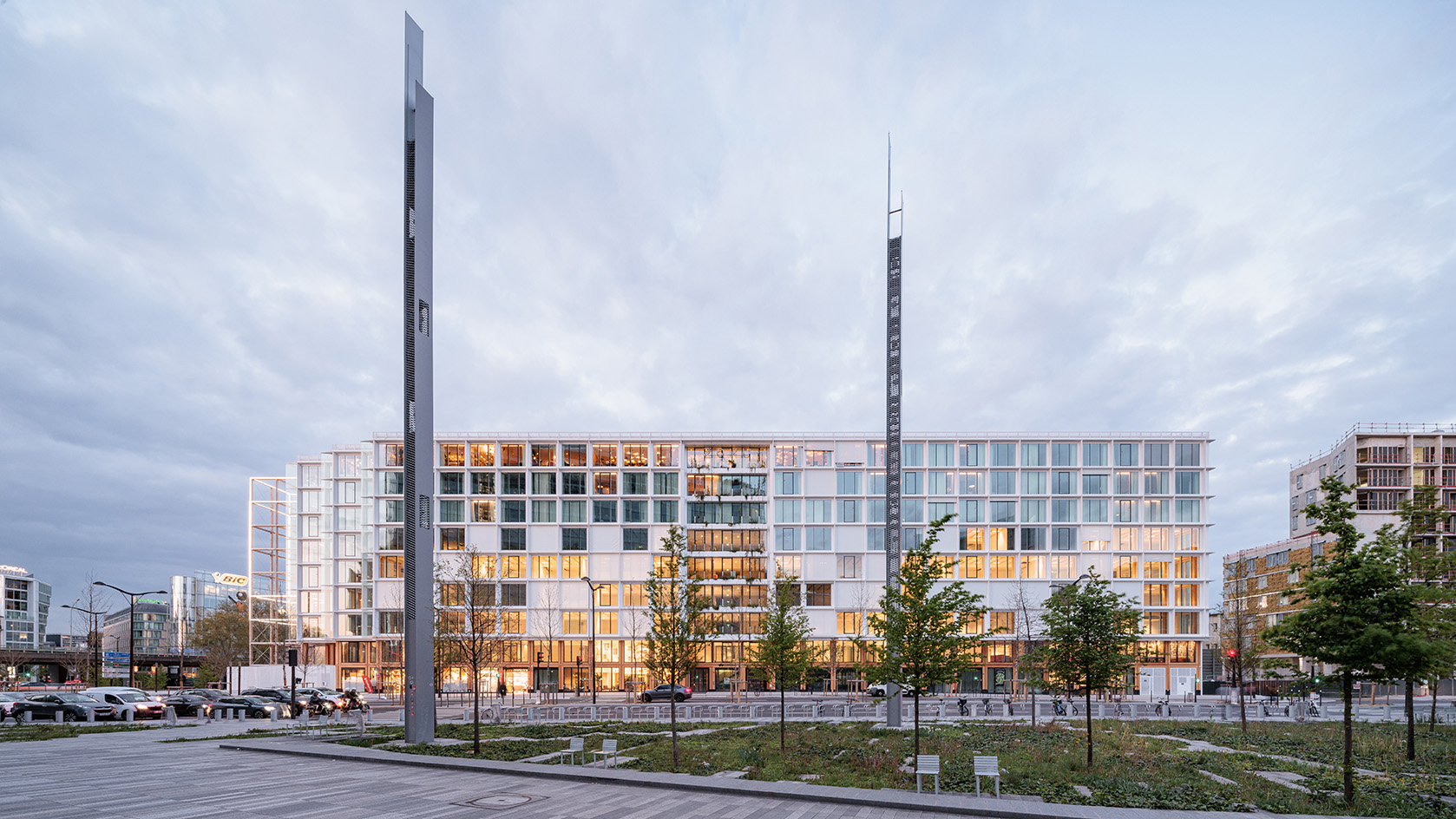
The Stream Building by PCA-Stream opens today (31 May 2023) in Paris, bringing with it a vision for urban design for the 21st century. It is a mixed-used structure based on sustainable architecture principles, housing office and commercial activities – the outcome of almost 15 years of studies by the studio's research arm, Stream Lab.
'What makes the Stream Building different is precisely that it is not just an office building,' says Philippe Chiambaretta, the Parisian studio's founder. 'The building is a mixed-use laboratory that stitches the city together. It brings together, under the same roof, all the activities of a mixed and dense urban life, in the spirit of the "15-minute city": offices, a hotel, four restaurants, a rooftop, two food halls. It offers a plural, hybrid and hospitable place, inspired by the mutations of contemporary lifestyles, and becomes a new place of life and resources for the inhabitants in a neighborhood that was cruelly lacking in amenities and services.'
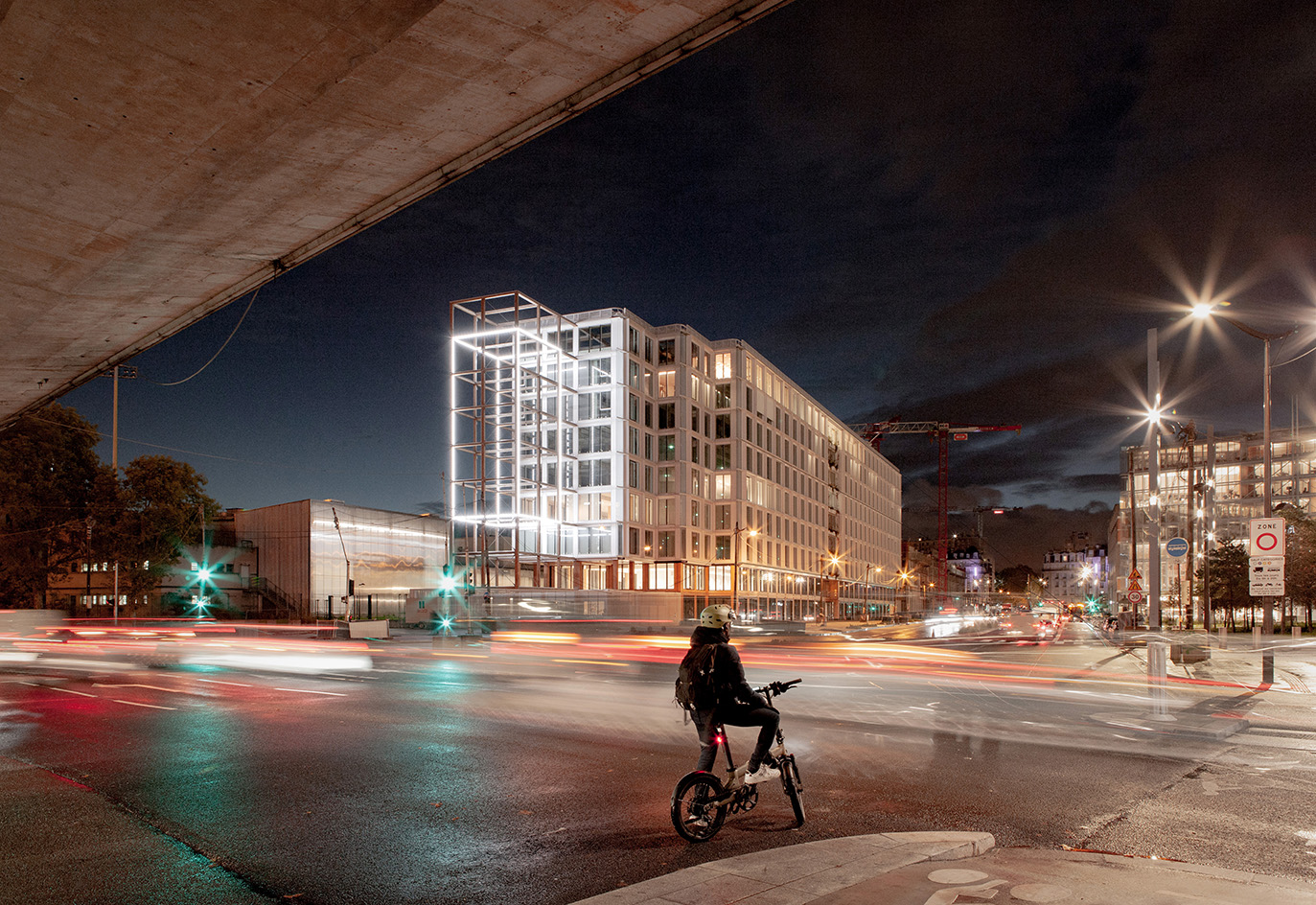
Stream Building: beyond an office building
Chiambaretta has just completed the project, which is situated in the heart of Paris' Clichy-Batignolles district. He sees it more as a manifesto than an example of workspace architecture. 'As an applied research building, it materialises over ten years of prospective thinking, notably carried out during issues 02 and 03 of the Stream magazine [the studio's in-house publication], focusing on new uses and challenges of the Anthropocene,' he explains.
'The prospective dialogue conducted by our research department with thinkers, researchers, artists, and urban actors reflects our conviction that architecture is not merely a formal game but should constantly question itself and explore major contemporary transformations, in a process symbolized by our “think/build” formula. Each research cycle thus takes shape in our buildings and urban projects. The result is a design based on the concept of metabolism and circular economy: the building is conceived as a productive organism that transforms its resources through synergistic relationships between its spaces.'
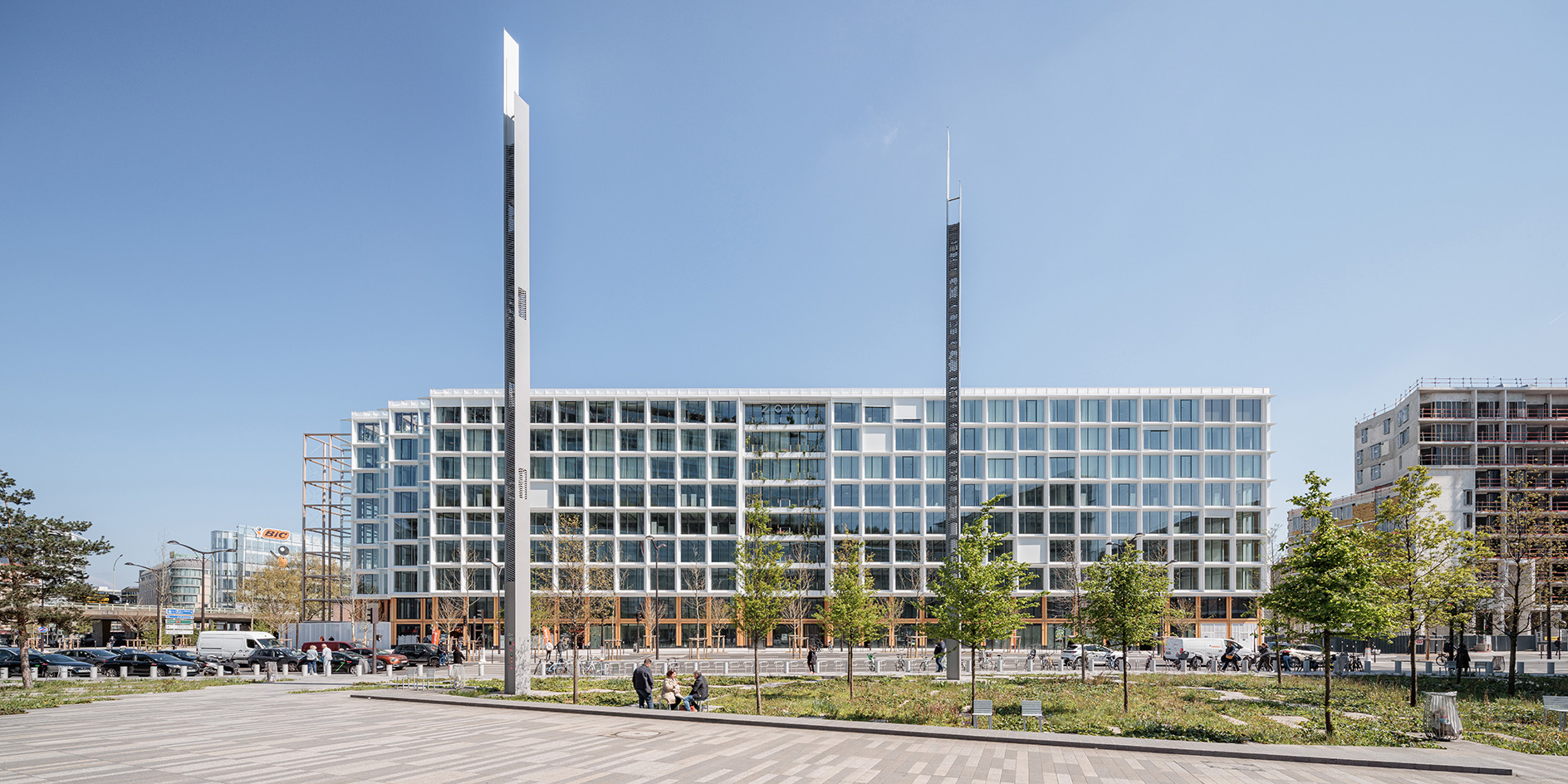
He continues: 'The framework has been designed so that the building's uses can change without major structural work: tomorrow, office floors can become a hotel, and vice versa. The building is, in a way, recyclable. The Stream Building is also a prototype of an innovative construction method. Its wood-concrete hybrid structure, aiming for carbon footprint optimisation, is complemented by an ambitious prefabrication system that allows for a fast construction process with minimal disruption. The experimental dimension of the Stream Building will be experienced over the long term: the building will be subject to an annual report for ten years, providing feedback on all the innovations implemented.'
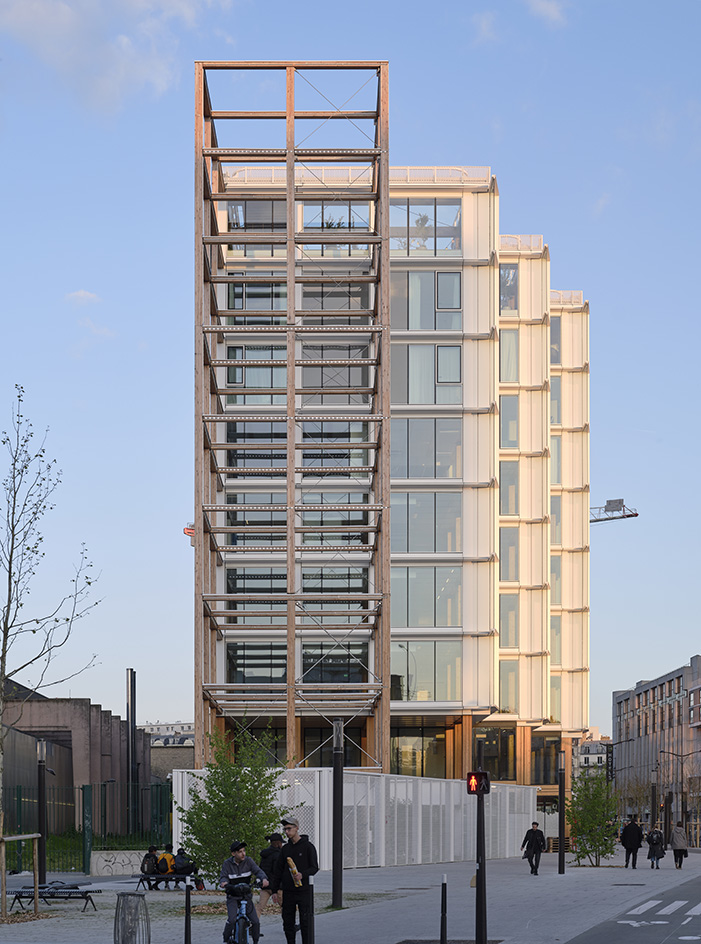
Sustainability sits at the heart of the design
Even though it is located in an urban setting, in one of the world's contemporary metropoles, it remains in constant dialogue with nature. It features a productive roof, designed around the principle of agrivoltaics: nearly 400 sq m of photovoltaic panels combined with over 300 sq m of urban agriculture. There are no chemicals in use and the year-round garden provides ingredients for the chefs in the building's restaurants. It also helps absorb rainwater and regulate temperatures in the building and wider area. It acts as a biodiversity corridor for wildlife and feeds a micro-brewery in the basement, whose results are consumed in the building's hospitality offerings. Organic matter that is not used throughout the building's functions, goes into a composter that recycles it to feed the cultures on the roof.

The structure itself is linear and fittingly streamlined, all clean lines and grid-inspired façades. A light piece by artist Pablo Valbuena is incorporated within the exterior's crisp grid. It explores 'the modular system of the Stream Building using time and light as material', in the words of the artist. The work runs on energy produced by the building's solar panels.
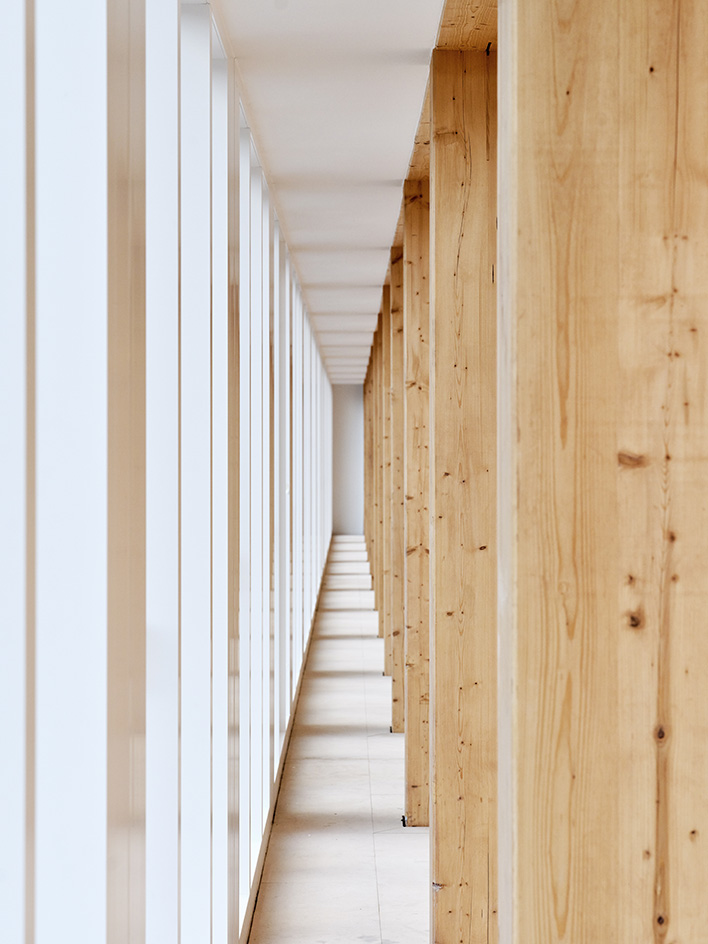
Stream Building: its future
Providing a sustainable, focal point for the area and numerous activities for locals as well as users coming from further afield, the Stream Building promises to become a vital hub of activity for its neighbourhood. As to whether there will be more Stream Buildings in the future, and elsewhere in the world? 'Who knows if there will ever be a Stream Building in London? In any case, one thing is certain: this approach combining mixed use, formal simplicity, material efficiency and reversibility appears to be essential in our current urban context,' says Chiambaretta.
